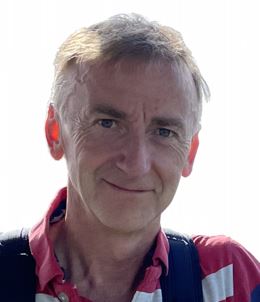The Taiwan - European Chip Innovation Forum 2024 in Prague Oct 29-31
The Forum was hosted by Taiwan Semiconductor Research Institute ("TSRI"), Interuniversity Microelectonics Centre ("imec") and Europractice. One of the main themes throughout the Forum was the need for us all to collaborate, especially between the semiconductor industry and academia, and something we activity promote here at SoC Labs. The presentations and attendees from both communities was very impressive and hopefully will lead to a lot of innovative collaborations.
Taiwan Semiconductor Manufacturing Company ("TSMC"), Taiwan's and indeed the world's foundry partner was present and supported by the academic access pathway partners of Europractice and they shared the desire of everyone in the supply chain to work towards easing the pathway for academics to be able to produce silicon devices at the more advanced nodes especially finFET at 16nmm and 7nm. Something we are also working towards within SoC Labs. The three major Electronic Design Automation ("EDA") vendors were present, Synopsys, Cadence and Siemens and supported this aim so the future looks exciting if we can all take the opportunity to work together.
Julien Ryckaert and Anita Farokhnejad (imec) gave very informative and educational presentations of the future of compute scaling beyond the current finFET era, advances in Design Technology Co-Optimisation ("DTCO"), as well as a detailed workshop on imec's pathfinder Process Development Kit ("PDK") activity. They covered in depth the work behind the current N2 Nanosheet technology, the development of the PDK and their hope that this open source PDK will be the basis for collaborations. It is hoped that industry and academia can work together on developing a better understanding of future technology nodes and advances beyond DTCO improvements that can be enabled by innovation at the system level often described as System Technology Co-Optimisation ("STCO"). It was a very engaging workshop made possible by the great material presented by Julien and Anita and the range of experience and knowledge being shared and exchanged by the workshop attendees.
There were presentations on a wide range of semiconductor interests from both leading European and Taiwanese academics in areas such as Silicon Photonics, Micro Electro-Mechanical Systems ("MEMS"), power devices and of course Artificial Intelligence and Machine Learning ("AI/ML"). An old colleague, Michael Kraft, now at Leuven gave a great overview of MEMS activity covering a wide range of applications. Wei-Leun Fang from National Tsing Hua University gave an interesting presentation on the MEMS ecosystem in Taiwan. There seems to be plenty of opportunities for innovation in new sensors and sensing applications that can be combined with new methods of assessing the signals we get from them to understand the world around us and for devices to help us make the world a better place. MEMS seems a real strength in Europe and the demand for more compute for AI/ML that can be satisfied by logic at advanced nodes in combination with real world sensing data is an interesting area and one we are keen to support in SoC Labs.
There were many presentations on AI/ML. Professor Youn-Long Lin gave an interesting presentation on the Co-Optimisation strategy behind HarDNet system architecture which looks to balance the competing demand for growth in model size, compute intensity and the memory access demands of AI/ML applications.
It was good to hear about the work of local Czech and neighbouring country academics, the industry ecosystem partners that engage with them and how we might develop collaborations. One highlight was hearing about the work of Pawel Grybos and the team at AGH University in Krakow Poland on the complex issue of pixel based detectors for large physics research and other application areas such as medical imaging. We seem to share a common task of supporting the activities of the global synchrotron community. As well as collaboration, a common theme was how we better excite and prepare students to join the semiconductor industry and share our passion for this exciting field which everyone including global governments have recognised is a key technology to the advancement of society. As always more work for us to do and SoC Labs is pleased to help support that with activities such as our nanoSoC based educational focused activities.
It would be far too long a read to cover all the presenters and presentations over the three days but everyone was stimulating and of great interest and I look forward to meeting up with everyone again in the future.
 John Darlington
John Darlington
Add new comment
To post a comment on this article, please log in to your account. New users can create an account.